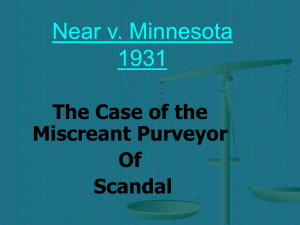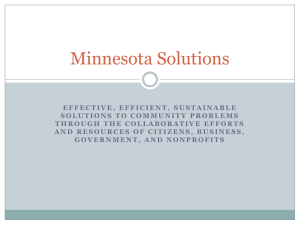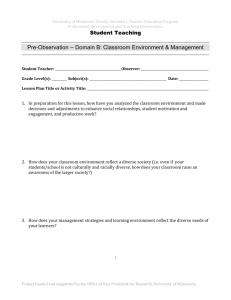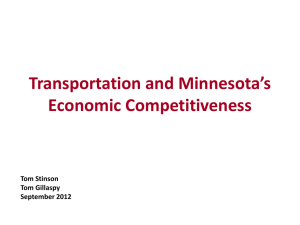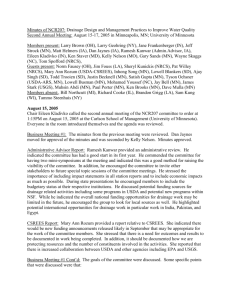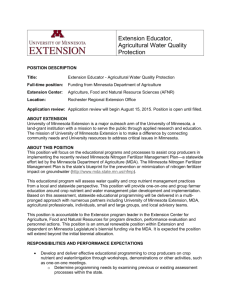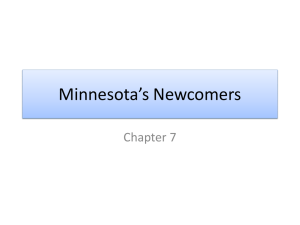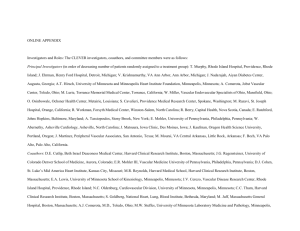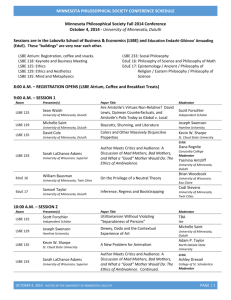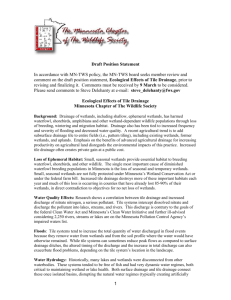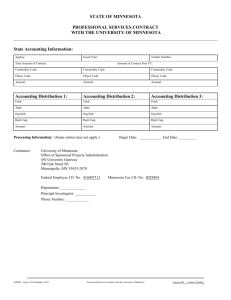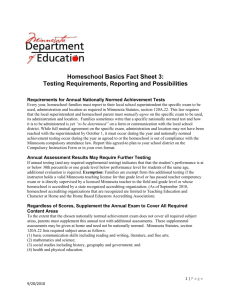What is Agricultural Drainage? - Minnesota River Basin Data Center
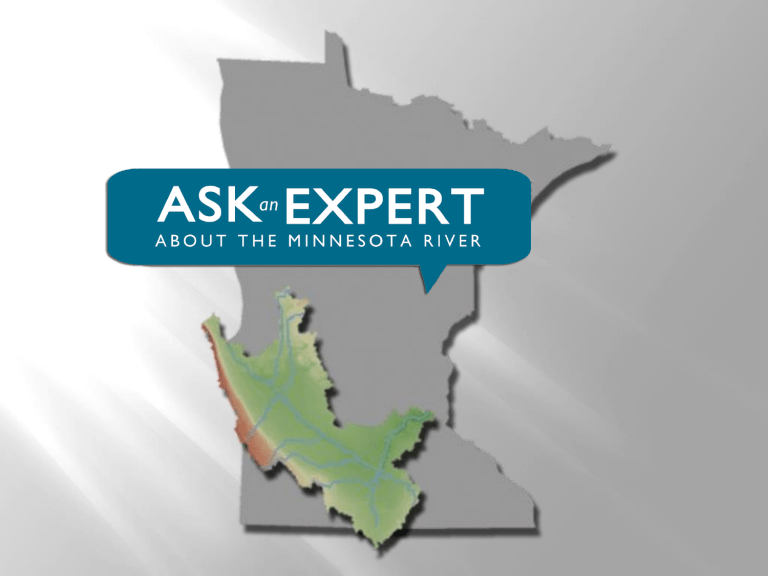
Does agricultural drainage affect the
Minnesota River?
“Agricultural drainage systems make crop production more successful.”
- University of Minnesota Extension
Minnesota has more than 21,000 miles of ditches and channelized streams (shown in red) , which serve as the drainage infrastructure for the agricultural regions of
Minnesota.
Gary R. Sands www.extension.umn..edu
“Glacial processes in upper Midwest created an abundance of highly productive but poorly drained soils.” Gary R. Sands U of M
What is Agricultural Drainage?
Underground tile drainage
Courtney Thoreson
R. Cooke, University of Illinois
“Southern Minnesota would not reliably produce such high yields of crops if artificial drainage systems were not installed.” –Lowell Busman
& Gary Sands
Laying tile in Brown County,
Minnesota
“In recent years, farmers have installed as much as 100 million feet of subsurface drainage pipe in Minnesota annually.”
– Busman & Sands
More and more farmers are expanding their farmlands closer to the river which is altering the rivers path.
Examples of Sub-surface drainage in the Minnesota
River Basin
Group 1: Farmers
Muddy Waters
Debate Question: is advocating for higher crop yields worth the environmental risks to the worlds’ rivers?
Group 2: Environmentalists
Controlling Farm Runoff
Debate Question: is it worth protecting the rivers while giving up large, productive farming practices?
“Ask-an-Expert about the Minnesota River” profiles scientists and citizens answering questions about the health of the Minnesota River.
Produced by the Water Resources Center at Minnesota
State University, Mankato
To learn more, visit the Minnesota River Basin Data: mrbdc.mnsu.edu/learn


